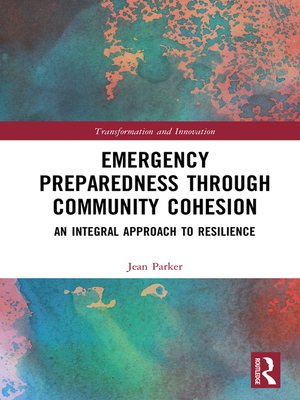Emergency Preparedness through Community Cohesion
ebook ∣ An Integral Approach to Resilience
By Jean Parker

Sign up to save your library
With an OverDrive account, you can save your favorite libraries for at-a-glance information about availability. Find out more about OverDrive accounts.
Find this title in Libby, the library reading app by OverDrive.



Search for a digital library with this title
Title found at these libraries:
| Library Name | Distance |
|---|---|
| Loading... |
This book is a revision of the author's original doctoral thesis on emergency preparedness through community radio in North Indian villages into a widening array of possible reapplications in other community development fields.
The author expands on the process of transforming emergency preparedness education through community media in rural North India and applies this to the development of community-prosperity, defined simply as human and planetary well-being, anywhere in the world. A new theoretical framework is presented which combines the pivotal Integral Worlds Approach developed by Lessem and Schieffer with Critical Theory, thus exploring a new way to envision and implement social change, leading to innovation and social transformation.
This book introduces the term "constructive resilience," which is a type of community-building that occurs alongside dominant societal structures that are either oppressive or ineffective. An evolving field of study and practice, it is emerging from the work of academics and community-builders who are members of the Bahá'í Faith. Bahá'í "consultation," a process of inquiry and decision-making, is offered as a systematic and effective method of defining problems and enacting solutions and is examined in the context of emergency preparedness education and local capacity-building.
With its integral development approach, its unique combination of themes and theoretical components, and integration with the Bahá'í Faith, as well as its interdisciplinary nature, this book will be invaluable reading for researchers in many fields. It will be of particular interest in university-based training programs in disaster management and the various disciplines of international community development, as well as practitioners in the areas of micro enterprise, disaster management, community development, rural communications, rural economics and emergency preparedness education.







